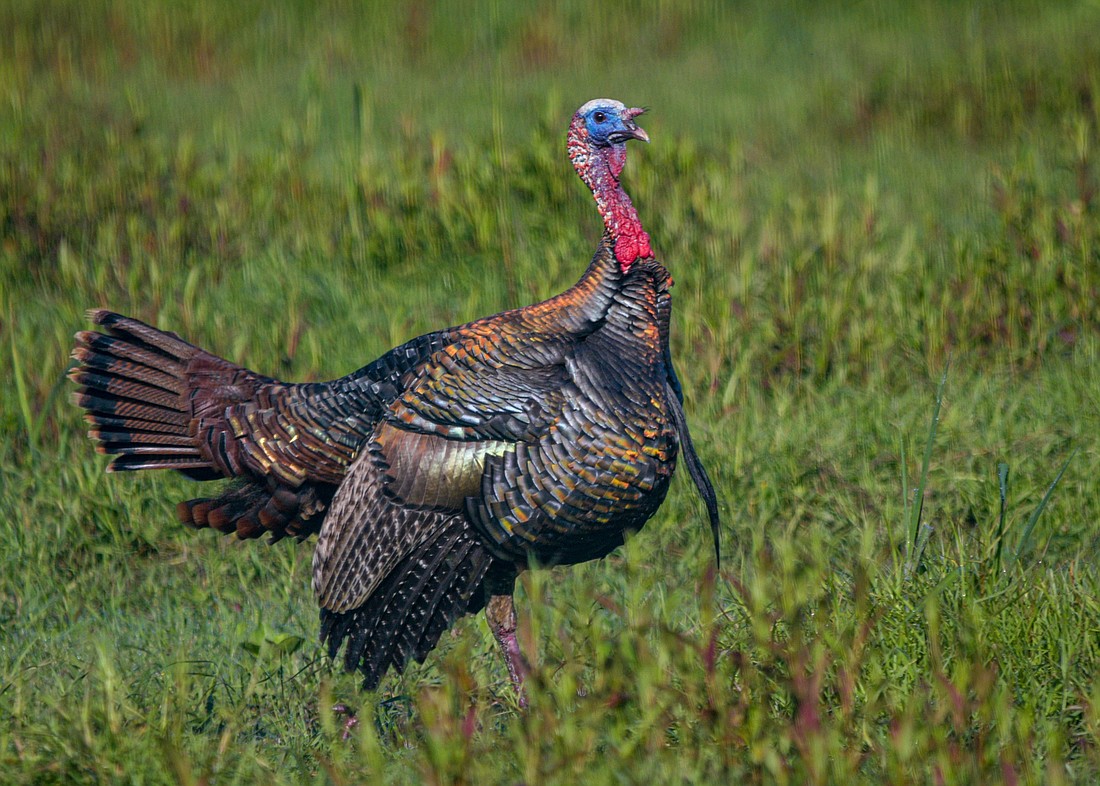- April 24, 2024
-
-
Loading

Loading

With their long legs, wide, rounded tails, iridescent feathers and long, slim necks, wild turkeys are impressive, if slightly peculiar looking birds. They're sizable too: wild turkeys can weigh up to 20 pounds, with wingspans up to five feet.
To conserve energy, and due to their foraging style, turkeys spend most of their time on the ground. Traveling in fast-moving flocks, you'll hear them cluck and purr, communicating among themselves as they purposely peck for acorns, nuts, berries and insects.
When they must, they are incredibly fast on their feet, with running speeds of up to 25 mph. And, though they're not long-distance fliers, they are capable of speeds of up to 55 mph in the air. For safety from ground predators, wild turkeys roost in trees at night.
Like many birds whose chicks are born precocial (feathered and able to feed themselves) but not yet able to fly, wild turkeys nest on the ground. After a short courtship, the toms wander off, leaving the hens to build a nest, lay eggs and then raise the newly hatched chicks (known as poults) on their own.
Nests are merely scratched depressions in dead leaves at the base of trees, under brush piles or in thick shrubbery, and are extremely vulnerable to predation. Hens dutifully incubate their eggs for about 28 days, leaving the nest rarely to feed.
A few hours after the nine-13 poults hatch, the hen leads them away, teaches them to find food and keeps them warm under her wings and tail, until they can fly and fend for themselves. And, thanks to conservation efforts, and protected lands, our native turkeys still thrive in the wild.
Save our Seabirds is a non-profit organization whose mission is to rescue and rehabilitate sick and injured birds, releasing as many as they can, while educating our community about avoiding injuries and preserving habitats.